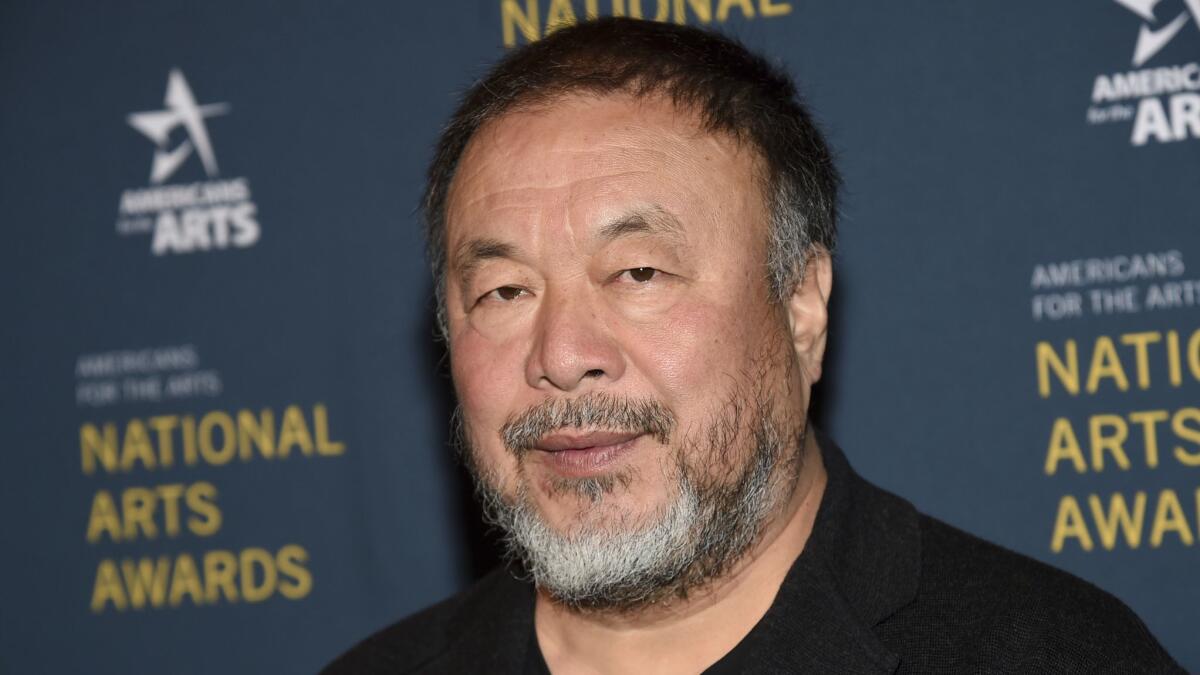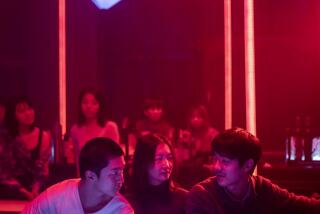Ai Weiwei’s segment was cut from ‘Berlin, I Love You’ to appease China, artist and producers say

Chinese dissident artist Ai Weiwei’s contribution to the film anthology “Berlin, I Love You” was cut from the final version released in the U.S. earlier this month. The artist and two producers say it’s because his participation was seen as a liability for securing future funding and access to China.
“The reason we were given for the episode’s removal,” Ai said, “was that my political status had made it difficult for the production team.”
The Berlin film is the latest in the series of “Cities in Love” filmmaker collaborations, which previously included New York and Paris.
Ai was blindsided. His segment had been the first completed. He only learned it had been deleted after the release of the film.
“I was completely shocked when I learned the news,” he said. “To cut the part they used to say they loved the most.”
Hollywood faces uncertainty in China as the film business evolves »
In the course of his own query, he said he learned that one of the executive producers involved in “Berlin, I Love You” intended to create a Shanghai installment of the series and felt that an association with Ai, who frequently speaks out against the Chinese government, would reduce the chances for the next project’s access to the country.
Claus Clausen and Edda Reiser, two of the film’s producers, confirmed Ai’s story, adding that there had been no creative differences.
“It was a very special project, especially the Ai Weiwei segment,” Clausen said. “I am furious that it’s not in there.”
The artist lives in Berlin, and his accusations come on the closing weekend of the Berlin International Film Festival, where Chinese director Zhang Yimou withdrew his submission, “One Second,” a film set during Mao Tse-tung’s Cultural Revolution, for the coveted Golden Bear prize due to “technical reasons.”
It is an explanation few familiar with the Chinese film industry believe.
In 2017, China passed stricter laws governing its movies, including tougher reviews of projects submitted to international festivals.
Ai’s and Zhang’s cases are just the latest troubling examples of China’s influence beyond its borders, showing how Beijing can flex its muscle over the arts, and on events and projects taking place thousands of miles away.
Ai also claimed that those behind “Berlin, I Love You” had tried to submit the film to the festival.
The Berlin festival has a reputation for valuing projects with political themes. On Monday, the festival said it would not comment beyond saying that “the involvement of Ai Weiwei would never be a criteria for choosing or not choosing a film.”
The Los Angeles Times viewed an email that appeared to support Ai’s story that at least some involved in “Berlin, I Love You” believed the festival was avoiding projects associated with Ai.
“Chinese censorship has become institutionalized globally,” Ai said, “with Western partners increasingly willing to engage in this war against freedom of expression.”
Producers Clausen and Reiser described feeling embattled, with pressure from “many, many sides” to cut Ai’s portion or risk losing distributors and support, but they felt they had an obligation to the other directors and actors to move forward with a release.
“We underestimated the power of China,” Reiser said. “We were disappointed by the lack of support in the free world.”
Added Clausen, “I never thought there would be so much fear and influence out there.”
------------
See the most-read stories in Entertainment this hour »
Movie Trailers
More to Read
Only good movies
Get the Indie Focus newsletter, Mark Olsen's weekly guide to the world of cinema.
You may occasionally receive promotional content from the Los Angeles Times.






